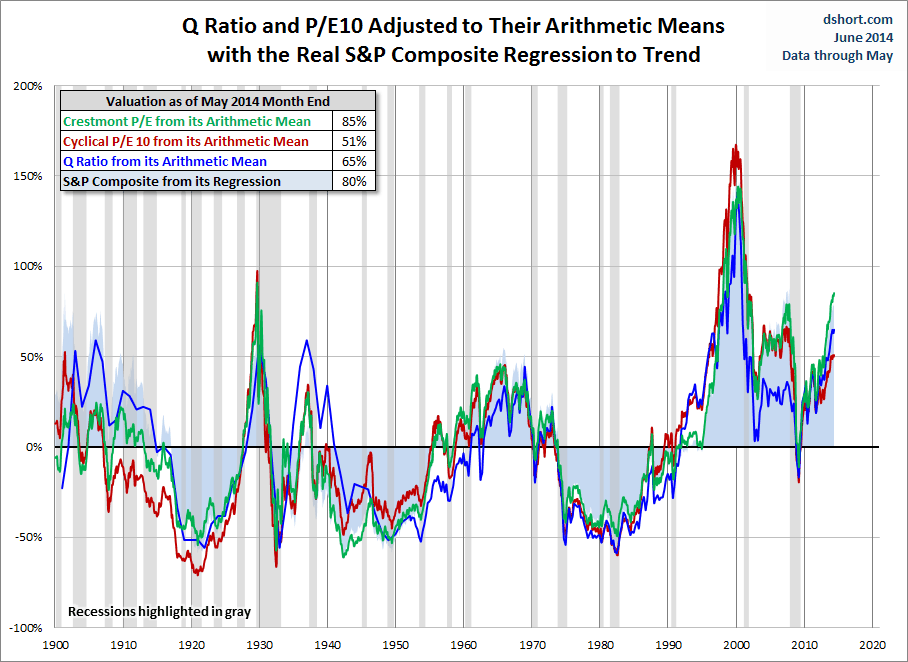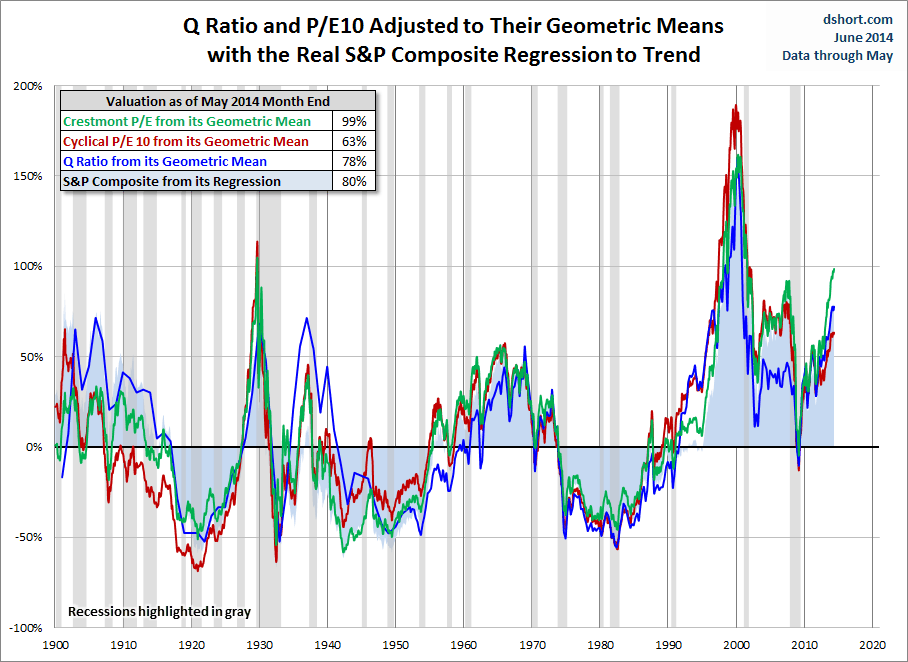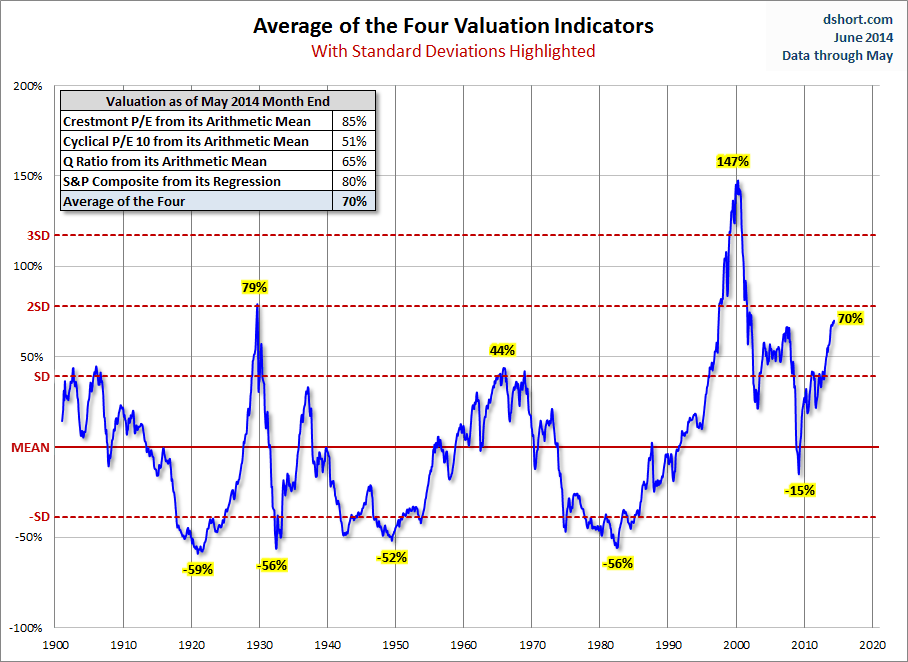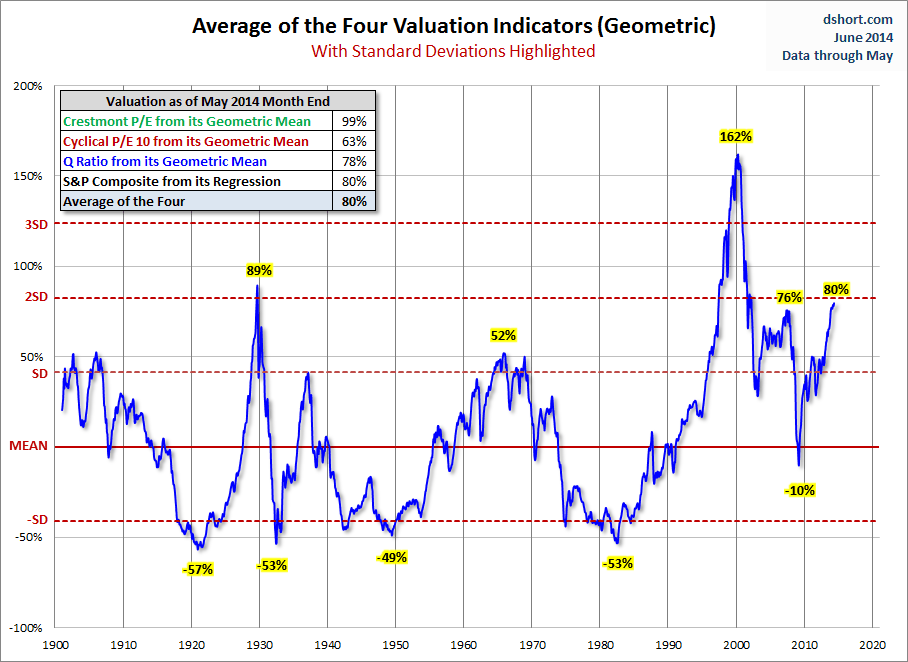Note from dshort: I've tweaked this commentary to include today's Federal Reserve release of the Z.1 Financial Accounts for Q1.
Here is a summary of the four market valuation indicators I updated at the beginning of the month.
|
To facilitate comparisons, I've adjusted the two P/E ratios and Q Ratio to their arithmetic means and the inflation-adjusted S&P Composite to its exponential regression. Thus the percentages on the vertical axis show the over/undervaluation as a percent above mean value, which I'm using as a surrogate for fair value. Based on the latest S&P 500 monthly data, the market is overvalued somewhere in the range of 51% to 85%, depending on the indicator, up from the previous month's 50% to 83%.
I've plotted the S&P regression data as an area chart type rather than a line to make the comparisons a bit easier to read. It also reinforces the difference between the line charts — which are simple ratios — and the regression series, which measures the distance from an exponential regression on a log chart.

The chart below differs from the one above in that the two valuation ratios (P/E and Q) are adjusted to their geometric mean rather than their arithmetic mean (which is what most people think of as the "average"). The geometric mean weights the central tendency of a series of numbers, thus calling attention to outliers. In my view, the first chart does a satisfactory job of illustrating these four approaches to market valuation, but I've included the geometric variant as an interesting alternative view for the two P/Es and Q. In this chart the range of overvaluation would be in the range of 63% to 99%, up from last month's 62% to 97%.

The Average of the Four Valuation Indicators
The next chart gives a simplified summary of valuations by plotting the average of the four arithmetic series (the first chart above) along with the standard deviations above and below the mean.
At the end of last month, the average of the four exceeded the credit bubble peak preceding the last recession.

Here is the same chart, this time with the geometric mean and deviations. The latest value of 80% is not far below the two standard deviation value of 82%.

As I've frequently pointed out, these indicators aren't useful as short-term signals of market direction. Periods of over- and under-valuation can last for many years. But they can play a role in framing longer-term expectations of investment returns. At present market overvaluation continues to suggest a cautious long-term outlook and guarded expectations. However, at the today's low annualized inflation rate and the extremely poor return on fixed income investments (Treasuries, CDs, etc.) the appeal of equities, despite overvaluation risk, is not surprising. For more on that topic, see my periodic update:
Note: For readers unfamiliar with the S&P Composite index, see this article for some background information.
